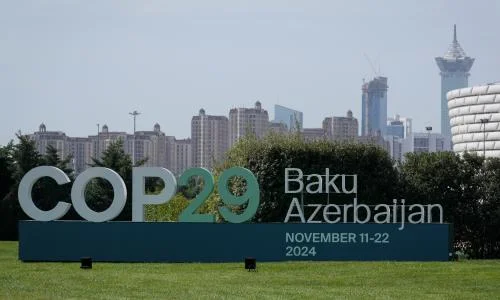Observers have said that Ursula von der Leyen’s decision to miss the Cop29 climate summit is “a fatal signal” and raises questions about Europe’s commitment to the climate crisis.
The European Commission confirmed on Tuesday that its president would not attend the UN climate talks in Baku, which start on Monday. The spokesperson was quoted as saying that the commission is in a transition phase and the president will therefore focus on her institutional duties,”.
Also skipping the “world leaders’ climate action summit” on Tuesday and Wednesday are France’s Emmanuel Macron and the outgoing US president, Joe Biden. The Brazilian president, Luiz Inácio Lula da Silva, cancelled his participation due to a head injury, Reuters reported. The leaders of China, South Africa, Japan and Australia are expected to miss the talks as well.
Mohammed Chahim, who is a Dutch socialist and the vice-chair of the European parliament’s delegation to the Baku talks, described von der Leyen’s absence as “regrettable”, but said it did not imply a lack of EU commitment.
Read also: Trump donor fined for pollution leads a fight to end methane emission penalties
He said: “The climate crisis does not wait for ideal conditions to act, and neither can we. After the re-election of [Donald] Trump, the EU must now take a stronger leadership role, both to sustain momentum and to counterbalance the US stance.”
Michael Bloss, a German Green MEP, also in the delegation, said it was “a fatal signal” that Europe’s most powerful woman, along with other leaders, had chosen not to attend.
Referring to Azerbaijan’s strongman president, Ilham Aliyev, Bloss said: “By leaving the stage to autocrats like Aliyev, we risk turning the conference more and more into a greenwashing spectacle for self-promotion rather than genuine climate action.”
Von der Leyen is preparing for her second term in office, expected to begin on 1 December after European parliament hearings with her top team conclude.
The commission will be represented at Cop29 by its climate commissioner, Wopke Hoekstra, and the energy commissioner, Kadri Simson, and a team of negotiators.
Story was adapted from the Guardian.
